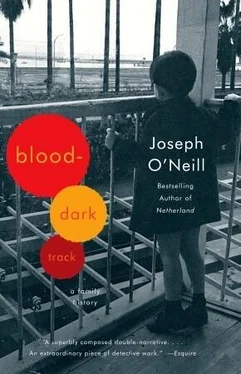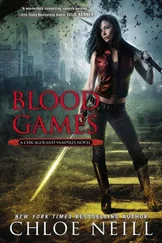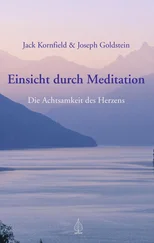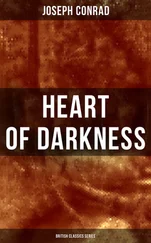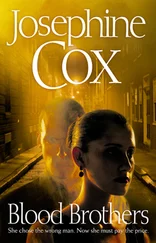… the old post cards do not depict Maurilia as it was, but a different city which, by chance, was called Maurilia, like this one.
— Italo Calvino, Invisible Cities
I was born on 23 February 1964 in the Bon Secours Hospital, Cork. The following day my father flew into Cork and went directly from the airport to the nursery ward, where to everybody’s amazement he unhesitatingly picked me out from the sixteen newborn babies lying anonymously in their cots. Then he walked quickly to the maternity ward to see my mother. She was in bed, and my father sat down on the rim of the bed. He took her hand. He had been abroad working, and it was their first meeting for over a week. ‘Your father has died,’ he said. My mother began to weep, and so did my father.
Born the day after his death, I was given my grandfather’s name — Joseph.
He died on a rain-blurred day in Istanbul. At some point in the afternoon, Pierre, my mother’s brother, sat grieving alone in an Istanbul café. A concerned stranger approached the tearful young man and gently asked him what his trouble was. ‘My father has died,’ Oncle Pierre said. The stranger took hold of Pierre by the shoulders and looked him in the eyes. ‘See to your mother,’ he said.
Joseph had for years been troubled by a heart problem that necessitated trips to Istanbul for treatment; and in 1961, he suffered a heart attack that brought Oncle Pierre, who was in Lyon studying law and economics, back to Mersin to help his father with the completion of the new Toros Hotel building. Joseph’s condition worsened. In January 1964, when Fonda Tahintzi went to ask for the hand of my aunt Amy, he found Joseph in bed, dressed in his bathrobe and too weak to rise. In February, X-rays of my grandfather’s heart were taken; these were, according to the Mersin doctors, inconclusive. Joseph appealed for help to Muzaffer Ersoy, his former personal physician, in whom he had great faith. Dr Ersoy, who had moved his practice to Istanbul and was on his way to substantial professional fame, requested that the X-rays be sent to him. Once he’d seen them, he responded immediately. The Mersin doctors had misread the X-rays: far from being inconclusive, they showed that the patient’s heart had suddenly enlarged; it was vital that he go to Istanbul immediately for further treatment and tests. Joseph’s worst fears were confirmed: for days, now, he had been vomiting in the mornings, grimly muttering, ‘ J’aime pas ça .’ So, wearing a hat placed on his head by Amy, Joseph caught a flight at Adana. It was his first experience of aviation, the death of a friend in an air crash having previously scared him off. On this occasion, though, getting on board the aeroplane truly was a matter of living or dying. Dr Ersoy said that the next three days would be decisive; either the patient would perish or the crisis would pass. Joseph said to his wife, Georgette, ‘I promise that if I survive I’ll buy you a fur coat. I’ll buy one for you and one for the wife of Muzaffer Ersoy.’
Nobody got a fur coat. On the third day of his hospitalization, Joseph died; but not before he had seduced my grandmother one last time. Lying on his bed, he asked her forgiveness for all the harm he’d caused her: ‘ Pardonne moi pour tout le mal que je t’ai fait .’ Mamie Dakad replied, ‘I am very happy with what I have had.’ My grandfather closed his eyes. For a long time he had worried terribly about dying, but now he was surprisingly and suddenly at peace. ‘ Comme c’est bon ,’ he said, and he squeezed his wife’s hand; whereupon he died.
My grandmother attached great weight to these dramatic gestures and would occasionally tell the story of her husband’s last moments to her daughters. It was, in her eyes, a kind of happy ending, and one which decisively vindicated the steadfast and exclusive love she had borne my grandfather for over thirty years. My mother said to me, ‘Because of what he said in the hospital, Maman always kept a good memory of Papa.’
A van came down overnight from Istanbul with the body. The journey was not easy. Snow was falling as the van crossed the Anatolian plateau, a near-desert of desolate, immeasurable darkness. The van slowly made its way through the snowstorm, the flakes falling without cease and still falling hours later as the vehicle slowly climbed the Taurus mountains, where, at the village of Pozanti, Fonda and Amy escorted it for the remainder of the journey. The convoy proceeded through forests and along terrifying precipices towards a narrow chasm known as the Cilician Gate, through which the army of Alexander the Great and the crusaders of the Holy Roman Emperor, Frederick Barbarossa, once passed. Eventually the snow and the mountains gave way to heavy rain and foothills, and finally to drizzle and the maritime plain of Çukurova, which is still referred to by westerners as Cilicia, after the Roman province (briefly governed by Cicero) of which the plain formed part. My grandfather’s body was driven through Tarsus, the birthplace of St Paul, where a still-visible hole in the ground is alleged to be the well in which the evangelist hid from his pursuers. Legend also sticks to Tarsus’ river, the Cydnus, on whose then navigable waters Cleopatra sailed her barge to meet Mark Antony. The convoy continued south-westward for about thirty kilometres, coming to a place that according to one conjecture is the location of Eden, a theory that, however crazy, is consistent with the remarkable fertility of the local earth, in which superb fruits and vegetables grow, and also with archaeological evidence (produced by the excavations of an English Hittitologist, John Garstang) which suggests that the area — that is, the area now occupied by the city of Mersin — is one of the oldest continuously inhabited spots on the planet.
The van followed Fonda’s car along an avenue of eucalyptus trees. This was the eastern road into Mersin. On they went: past the railway line that reaches a charming terminus at Mersin’s old railway station, past the courthouse, past the prison, past what used to be known as the Maronite quarter, past the Catholic church, past the old Greek quarter. They entered a town which I imagine I just about remember, a quiet port of white-stoned villas and lush gardens, of untidy shacks and donkeys loaded with panniers leaking peaches, of card-games and tittle-tattle in multiple languages — a town reeking, in the springtime, of orange blossom. There was practically no motorized traffic as the convoy proceeded up the main street, Atatürk Çaddesi, and drove by the Toros Hotel, whose transformation — two large old limestone houses knocked down and replaced by a single, brand-new, four-storey building with fifty-three rooms — Joseph Dakad had only recently completed. The only other vehicles of any size on the street were cabs, which is to say, red-spoked carriages drawn by two blinkered horses whipped into exhaustion.
As recently as the early ’seventies these squeaking, rocking contraptions were Mersin’s main form of taxi transport, and I often boarded them with my tiny, hunchbacked great-aunt, Tante Isabelle, to go from the hotel to the little stone house she shared with her tiny, hunchbacked sister, Tante Alexandra. Shaded by the cab’s tassel-fringed bonnet, mesmerized by the carriage’s brassy curves and the horses’ flying red pom-poms, surrounded by the odours of dung and Tante Isabelle’s Turkish eau-de-Cologne, I settled back in the scarlet leather seat like a pocket pasha and waited for the jolt that signalled the start of a ride of heavenly unsteadiness. We took the route taken by the convoy six or so years earlier, past rows of splendid palm trees that seemed to stand to attention, the whitewashed bases of their trunks smart as the spats worn by the Turkish soldiers who, to my delight, seemed constantly to march and parade on the streets of Mersin, often with glorious rockets and artillery on display. ‘ Dooma, dooma, doom ,’ I chanted from my great-aunts’ balcony summer of 1974, when Mersin was filled with troops and there was a blackout in case the Greeks bombed the town.
Читать дальше
Конец ознакомительного отрывка
Купить книгу
